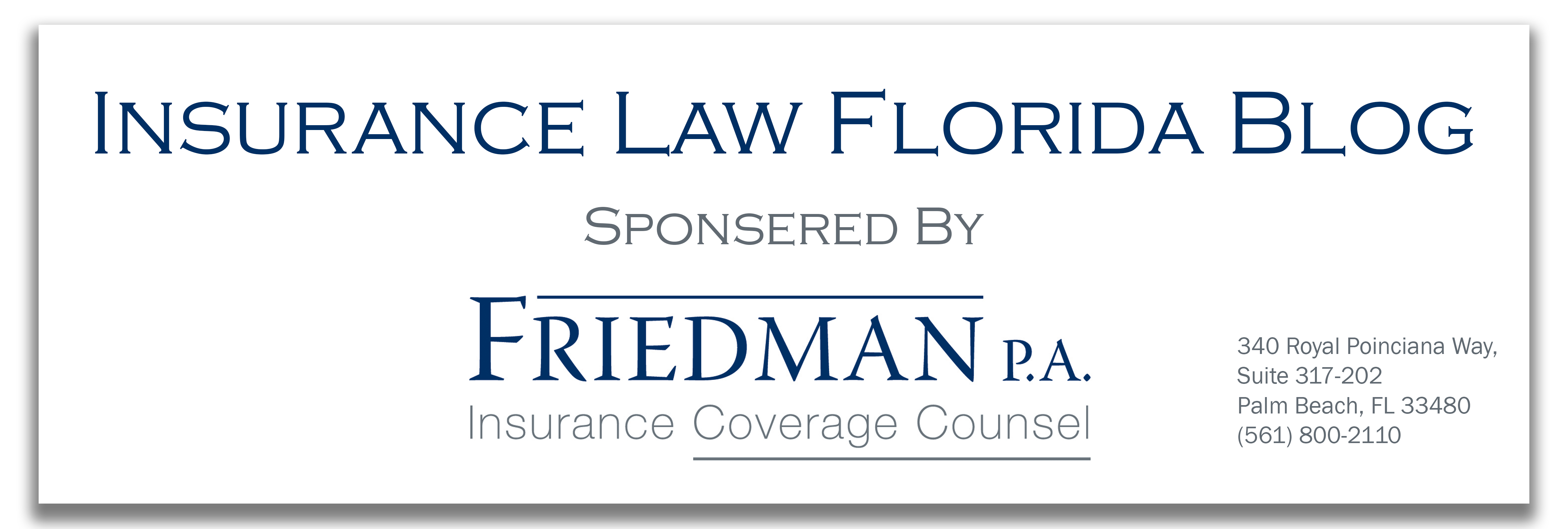This is for the insurance defense lawyers out there, and the plaintiffs’ lawyers who love to make their lives miserable. One of my loyal readers in Jacksonville (my friend and former partner at Gunster, construction law guru Ed Whelan) sent me a copy of this January 5, 2012 order in a construction defect case in Duval County captioned Oceanside 932 Condominium Assoc., Inc. v. Landsouth Construction, LLC (Case No. 16-2009-CA-007958). If you thought Catch-22 was some catch, wait until you read the order in Oceanside 932.
The plaintiff condo association dutifully sought insurance information from the defendant contractor, both in a Fla. Stat. Section 627.4137 pre-suit request as well as in discovery requests. The contractor produced two policies which provided coverage during the period July 2006 to July 2008. This posed a problem for the plaintiff, since the plaintiff alleged that significant new and additional property damage was caused by Tropical Storm Faye in August 2008. The plaintiff therefore went through great efforts to develop facts that would plead its damages within the period of coverage.
Two years into the case, and a month before trial, defense counsel “found” several additional policies providing coverage in later years, and also found insurance-related correspondence such as reservation of rights letters. Defense counsel also produced for the first time reports that supported a claim for damages during the term of these later policies. To make matters worse, two days before the insurance disclosure was made, the defendant’s liability carrier, Crum & Forster, filed a declaratory judgment action seeking a declaration that coverage did not exist for the plaintiff’s claims because plaintiff’s allegations did not trigger the relevant period of coverage.
Plaintiff’s counsel sought sanctions due to the improper conduct of defense counsel and the defendant’s carrier, and the court handed down the greatest sanction of them all: defendant’s pleadings were stricken, a default judgment was entered as to defendant’s liability, and the case was ordered to trial on damages.
The court recognized the critical importance of insurance coverage in how a plaintiff presents its case. The court noted that the defendant’s intentional withholding of insurance information severely prejudiced the plaintiff’s ability to develop its case and to pursue a fair settlement of the claims. Because of the late disclosures, the plaintiff had essentially been led down the wrong path the entire case, and the court felt the only appropriate sanction was to strip the defendant of its defenses.
It will be interesting to see if the decision holds up on appeal. But it is lesson to insurance defense counsel across the state to pay attention to those requests for insurance information. Too often defense counsel either make faulty assumptions about what policies are triggered by a loss, or fail to do their due dilligence to discover all applicable policies or insurer coverage opinions. Even though 627.4137 puts the burden on the defendant’s insurance carrier, and not defense counsel, to make the proper disclosures, frequently defense counsel takes it upon themselves to respond to the requests. Defense counsel fails to respond properly to such requests at its own peril.
Although 627.4137 may not have a statutory penalty provision, Oceanside 932 makes it clear that failure to produce complete copies of policies and to make full disclosure of the carrier’s coverage position will have severe consequences, for the defendant, the defendant’s insurer, and the defense lawyer who now may find himself on the receiving end of a 627.4137 request for his professional liability insurance policy.
